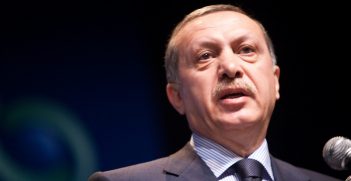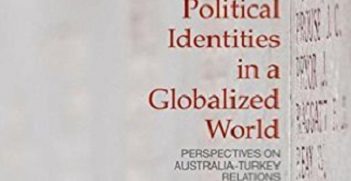Turkey, Syria and the Kurds

Turkey’s incursions into Syria have been widely criticised, but Turkey justifies them as self-defence measures. These incursions are also indicative of wider international interests and a long history of Kurds being marginalised.
Turkey’s current incursion into Northern Syria, which began in earnest on 9 October 2019, has been met with widespread criticism throughout the world. Similarly, the American withdrawal of their modest force fighting alongside the Kurdish Syrian Democratic Forces (SDF) militia faced backlash. For many observers, the American withdrawal was the betrayal of an ally that did much of the heavy lifting in the fight to eliminate the radical Islamist Daesh.
The Turkish Perspective
Despite worldwide criticism of Turkey’s action seeking to clear out some of the border areas in north-eastern Syria, senior Turkish officials have confided that for years, Turkey has been fighting a number of terrorist organisations that pose a risk and threat to their national security. It is with this understanding that since day one, Turkey has given its full support to all international efforts to this end. This includes supporting the International Coalition Against Daesh. Having successfully concluded Operation Euphrates Shield in 2017 and Operation Olive Branch in 2018, Turkey cleared an area of over 4,000 square kilometres of Daesh and People’s Protection Unit (PYD/YPG) terrorists. This allowed more than 360,000 Syrians to return to their homes in this area. Those 360,000 returned voluntarily and did not stay in Turkey or travel to Europe.
In the meantime, the Turks maintain that the threat of terrorism originating from Syria which targets Turkey’s borders has not yet ended. According to Turkish officials, during the last two years, PYD/YPG has perpetrated more than 320 terrorist attacks targeting Turkey or Syrians within Syria. Over a hundred of these cases targeted Turkey from the east of River Euphrates. Through tunnels dug by PYD/YPG along the bordering areas in this region, explosives and ammunition have been smuggled into Turkey to be handed over to the PKK terrorist organisation. Furthermore, Turkey asserts that there is credible evidence that Daesh terrorists detained by PYD/YPG were released in exchange for infiltrating into Turkey or northwest Syria in order to conduct terrorist acts.
The Turkish authorities further allege that there has been growing evidence regarding PYD/YPG’s human rights violations such as recruiting child soldiers, intimidating dissidents, demographic engineering and forced conscription in areas under its control.
The Americans
Middle Eastern actors have long underestimated the extent and nature of American isolationism in the world. Historically, it has benefited from substantial domestic American support, especially amongst blue collar Republican voters, the very people who today constitute the power base of President Donald Trump. It is therefore not surprising to see the American withdrawal from Syria. After Russia’s intervention in 2015, Syria has been little more than a side-show for the American military. Since the 2011 Arab Spring, it is clear that regardless of whatever political power is in the White House, America would not challenge Russian and Iranian efforts to support the al-Assad regime.
There is little doubt that America abandoning their Kurdish allies on the field would produce negative reactions and possibly even lead to a resurgence of Daesh. There is, however, precedent for the transition from Obama’s ‘leading from behind’ international strategy to Trump’s ‘get out fast’ approach. Similar choices can be seen in US efforts to withdraw from Afghanistan and their constant criticism of NATO allies’ lack of contribution to their own and Europe’s self-defence. It remains to be seen whether American isolationism will bring about a more stable Middle East. Any positive outcomes resulting from this are reserved for domestic political gain. Short-sightedness abroad has short-term domestic political gains on the American political chess board.
Bashar al-Assad’s Syria
The current goal of the al-Assad regime is to exert complete control over all Syrian territory. As such, the recent Turkish incursion and American withdrawal have allowed al-Assad to move his military into territory close to the Turkish border formerly held by Syrian Democratic Forces (SDF). The remaining Syrian opposition stronghold of Idlib in northern Syria is now threatened. These developments have allowed al-Assad to enter into a pact with the Kurdish SDF militia given the absence of any further US support on the ground. Together, al-Assad’s government troops and the Syrian Kurds can now square off against the Turks in northern Syria.
However, al-Assad is far from having his hands free. He is wholly dependent on Russian and Iranian support to buttress his military presence. Without it, al-Assad’s own domestic military would be unable to even attempt to control its own territory. Moreover, the Turkish incursion was doubtless sanctioned by the Astana Group (Russia, Iran, Turkey) as witnessed by the absence of Russian air power over the skies of northern Syria during the Turkish incursion. Al-Assad’s objective of imposing hegemony over all Syria is not yet shared by the Astana Group. The desire of the Kurds to create a homeland for themselves is also not a priority for this alliance.
The Kurds
Recent historical developments have not been generous to the Kurds or their political cause. In 1919, despite high hopes put forward by the Wilsonian doctrine, the Kurds were denied a homeland with a defined territory. The Westphalian model of international reality was simply too strong and proponents of the Kurdish cause were unable to wield sufficient power to impose their will. This curse of not being able to have a regional champion has continued. Most Turkish political parties – even the Kemalists – dislike the Kurds, blaming the PKK for destabilizing any neo-Ottoman resurgence. Iran’s Shia regime is an anathema to Kurds, most of whom are Sunni Muslims, and of a different ethnic origin to most Iranians. Iraq’s Saddam Hussein punished the Kurds after the US invasion with poison gas as President Bush Senior watched on. Under the Assad regime, the Kurds were mostly unemployed and stateless individuals. They were treated as untermenschen.
Then came was a historic opportunity to reverse these failures. In 2011, the Syrian uprising against the al-Assad regime offered the Kurds a unique opportunity to unite with their Sunni opposition compatriots and overturn the Assad dictatorship. At this historic moment, they diverged. The Kurdish youth were supportive, but the old guard remained aloof and refused to commit themselves. The response of the Syrian Christians was similar. In doing so, the Kurds lost the opportunity to create some regional élan. The American withdrawal of support and the pact with al-Assad reaffirmed a self-fulfilling prophecy of betrayal and resentment. It only magnified the suspicion of every regional state regarding any national loyalty the Kurds may have had with neighbouring states.
So, for now, the Kurds remain divided amongst themselves. The plethora of Kurdish political parties only confirms the obvious. The experiment in Irbid, the de-facto Kurdish capital of northern Iraq, is plagued by traditional family and tribal corruption. The PKK is a political dinosaur that has yet to grow out of its Marxist straitjacket. The YPG have their backs to the wall, betrayed by their international benefactor, and now at the mercy of their regional enemies once again.
Dr Bruce Mabley is the director of the Mackenzie-Papineau Group think tank based in Montreal devoted to analysis of international politics. Dr Mabley is a former Canadian diplomat and academic who has written a number of analytical and academic texts. In 2002, he was decorated by the French Republic as Chevalier des Palmes académiques.
This article is published under a Creative Commons Licence and may be republished with attribution.





